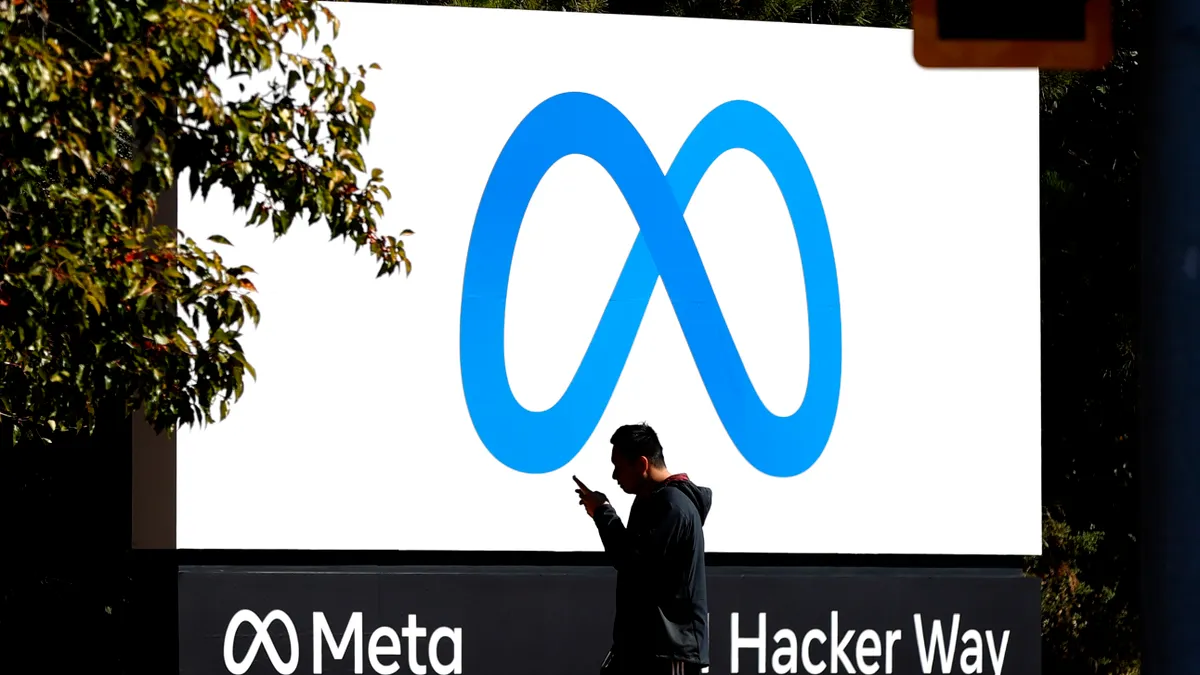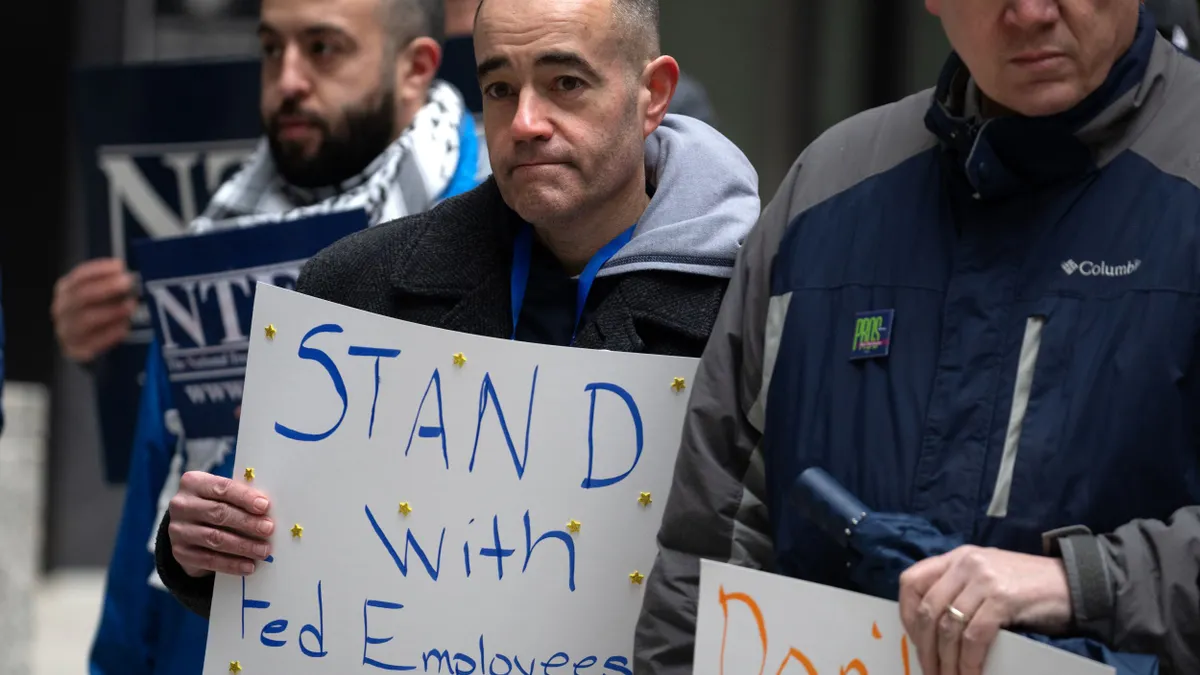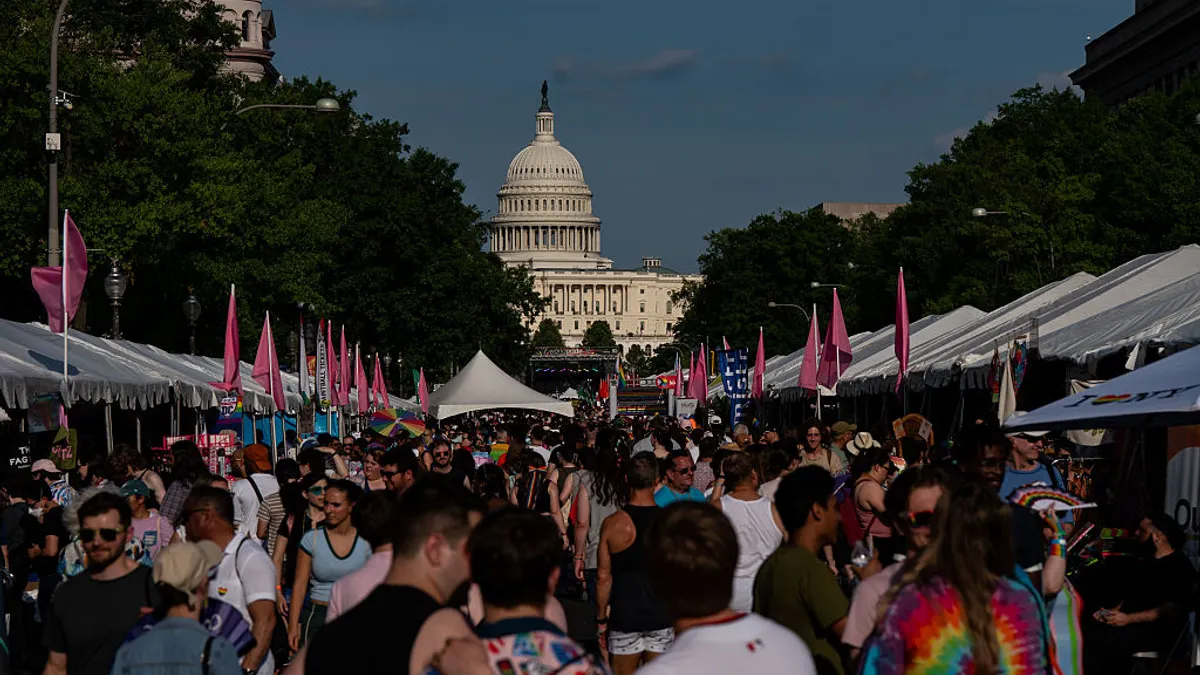Hannah Caplan is an associate with Brownstein Hyatt Farber Schreck. Views are the author's own.
Summer is behind us, the leaves are changing color and many workplaces are planning end-of-the-year holiday parties, striving to avoid pitfalls that could lead to harassment or discrimination claims at such events. But the festivities — and attendant risks — of Halloween should not be overlooked when looking ahead to the close of the year.
As the following survey of frightening case law demonstrates, Oct. 31 can be tricky and lead to discrimination and retaliation claims. By following the warnings shown in these Halloween-themed cases from across the nation, employers can mitigate the chilling risks of legal exposure this month.
Clarify and enforce rules for costumes
Though a fun celebration of the holiday, Halloween costumes at work can potentially invite discrimination claims if human resources does not take precautions.
For example, a Pakistani hotel employee in Michigan sued his former employer for national origin discrimination, citing a Halloween incident that preceded his termination. Specifically, the employee claimed co-workers suggested that he dress as Osama bin Laden, and referred to him as the "Taliban." Although the 6th U.S. Circuit Court of Appeals ultimately affirmed summary judgment in favor of the employer because it was not on notice of the alleged comments between co-workers, the court earlier concluded that whether these Halloween comments constituted a hostile work environment would be a question of fact.
A case out of Arkansas shows how off-duty Halloween costume shenanigans can also impact the workplace. Specifically, a Caucasian police officer dressed up at a Halloween party attended by off-duty police officers (although not a sanctioned event) in blackface, wearing bib overalls and a black, curly wig and carrying a watermelon. The 8th Circuit affirmed summary judgment for the employer, finding such behavior to be justifiable grounds for suspending the officer, and that the conduct was not protected First Amendment speech because it did not address a matter of public concern. In so ruling, the court rejected the officer's argument that the costume constituted protected speech because it was intended to amuse others at a party, distinguishing artistic expressions or performances, which can be protected under certain circumstances as entertainment or art.
Similarly to race and national origin, Halloween costumes can expose employers to potential gender and sex discrimination. For example the 11th Circuit in 2011 affirmed summary judgment in favor of a former employee of the Georgia General Assembly's Office of Legislative Counsel, agreeing with a district court that there were not justifiable grounds to terminate the employee, who was born male and subsequently diagnosed with gender identity disorder, and came to work dressed as a woman on Halloween, when employees were permitted to wear costumes. The head of the office reprimanded the employee for her costume and further told the employee her appearance was "inappropriate" and "unnatural."
The employee was later terminated because the head of the office claimed the employee's plan to undergo a gender transition "was inappropriate, that it would be disruptive, that some people would view it as a moral issue, and that it would make [her] coworkers uncomfortable." These statements, which sprung from discomfort with the employee's Halloween costume, ultimately came back to haunt this employer, with judgment entered against it and in favor of the former employee.
In New York, a Halloween costume accentuating the differences between the sexes also spun a web of gender discrimination. Specifically, female co-workers made comments to the plaintiff about her breast size factoring into her success at the company, and stuffed their bras and wore a name tag bearing the plaintiff's name for Halloween.
The Court found that such conduct was discriminatory "on the basis of sex," rejecting the defendant's argument that because members of the same sex were engaging in the behavior, it could not be on the basis of sex, noting: "The significance of breasts with respect to gender identity is unique to women, especially regarding breast size. In a professional workplace, breasts are the most obvious and easily observable representation of gender. That Plaintiff was treated differently because of her breasts, a distinctively female gender characteristic, establishes that such treatment was 'because of sex.'"
Overall, employers should be wary of any costume suggestions or comments to workers based on a protected class or status.
To help avoid the potentially frightening consequences of costumes in the workplace, consider circulating a notice to employees the week preceding Oct. 31, reminding them of anti-discrimination and anti-harassment policies, emphasizing that these policies apply to Halloween getups and related behavior. This can also be an opportunity to clarify whether and if so, when, costumes are permitted at the workplace at all. Additionally, all costumes (if allowed) should be required to adhere to any dress code applicable to employees. In conjunction, all supervisors should be reminded to take immediate action if they see or learn of a costume or conduct that may run afoul of the law or company policies.
Approach work-sponsored celebrations with caution
Finally, the very celebration of All Hallows' Eve must be approached with care, as the following examples demonstrate. Although not generally considered a religious holiday, observing Halloween in the workplace can implicate protections against religious discrimination.
A Pennsylvania court allowed a retaliation claim to proceed against a plaintiff's former employer based in part on allegations that plaintiff, a practicing Jehovah's Witness, exercised her religious rights by refusing to attend a work-sponsored Halloween party. The plaintiff was criticized for her non-appearance and told she was not a team player because she skipped the "mandatory" event. Following the party, the plaintiff started receiving corrective actions, although she had no disciplinary actions prior to her decision not to attend the party, ultimately leading to her termination.
In Illinois, a Christian employee alleged she was terminated for her religion when she handed out bags of candy at a Halloween event with pamphlets known as "gospel tracts" that negatively depicted Muslims and Catholics and stated that they would go to hell. Because this employee violated the employer's anti-harassment policies with this behavior, and was unable to show she was treated differently than others who violated those policies, the 7th Circuit affirmed summary judgment in favor of the employer.
Also in Illinois, an employer escaped liability for a religious discrimination claim by a Wiccan employee who claimed he was discriminated against for his religious beliefs. Specifically, the 7th Circuit affirmed summary judgment for the employer because the employee's speculation that a supervisor could have learned that he considered Halloween to be a "holy day" from another co-worker was insufficient to show the supervisor actually knew of his religion.
Nonetheless, if an employer is aware of an employee's sincerely held Wiccan beliefs (or other religion that may observe All Hallows' Eve), the employer may need to accommodate the employee with the day off for Halloween (even if a team-building party is scheduled for that day), and legal counsel should be consulted when considering such a request.
As these decisions show, employers should use caution when holding Halloween events. If attendance is mandatory (either explicitly or implicitly), not only must an employer consider religious exemptions, but also non-exempt employees must be paid for any mandatory attendance. Legal counsel should be consulted on these and related issues. And just as with costumes, it should be made clear, preferably in a written communication to employees, that anti-discrimination and anti-harassment policies apply to behavior at such events.
Just as the would-be victims of the masked killer in a horror movie, employers must arm themselves with preventative weapons to survive the Halloween season without legal carnage. With the arsenal of tips and lessons from these scary case summaries, the workplace can be a fun place to celebrate on October 31.


















